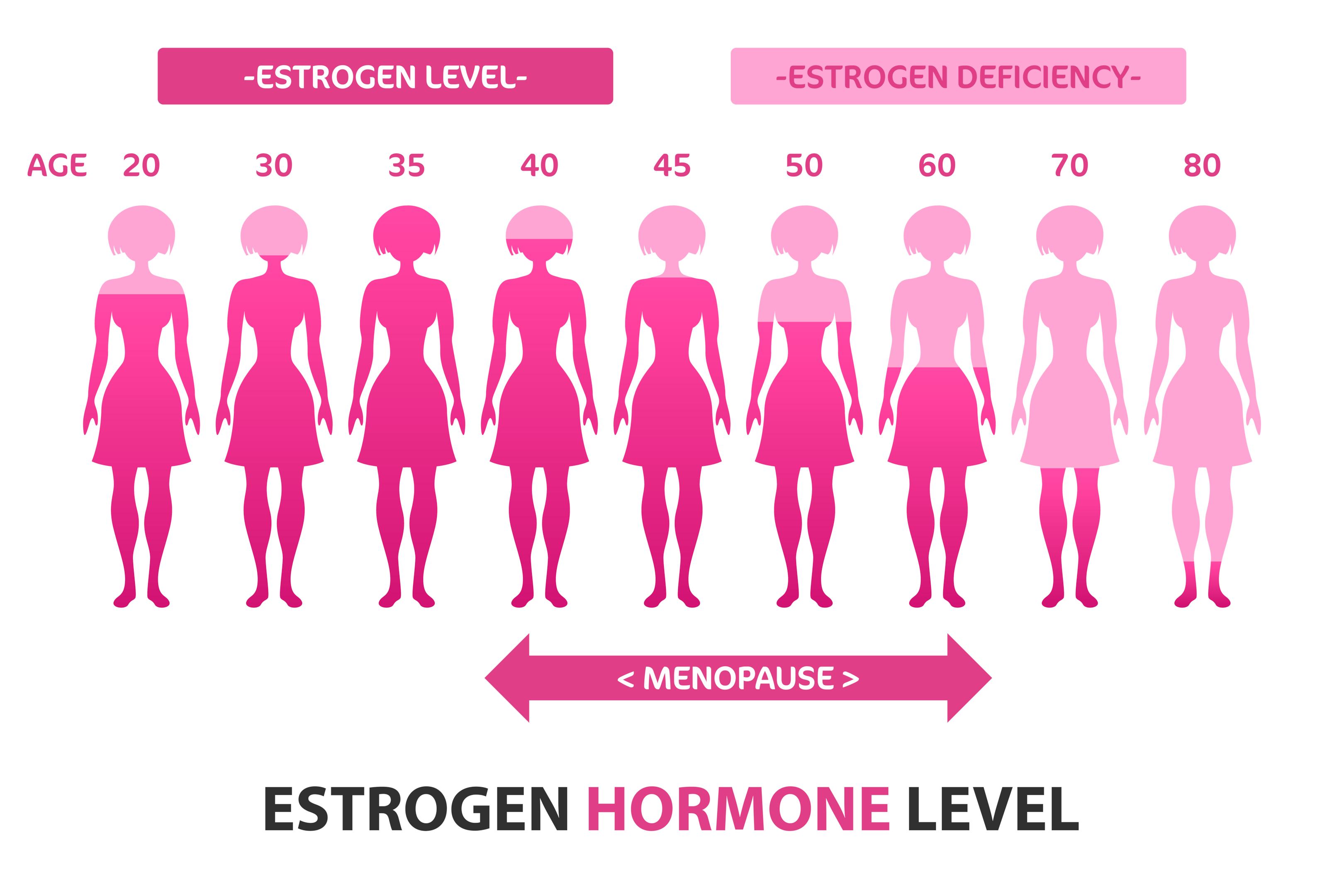Can menopause cause weight gain?


Hormonal disturbances during menopause influence weight and fat distribution.

Menopause is the complete cessation of ovarian functionality and occurs around the age of 50 in most women. It is an important life event and will cause various changes in the body, including changes in body fat distribution. Around this age, various other factors also combine to cause weight gain.
Women will typically gain weight with age as it generally becomes more difficult to manage their weight with advancing age. This may be because the hormone changes and psychological factors associated with menopause can cause a rapid increase in weight. What causes weight gain during menopause? How dangerous could it be? What can you do to manage it? Let me answer these questions in light of scientific studies.
According to various studies, women are likely to gain 5-10 pounds during and after menopause. Why? A lot of factors can cause weight gain in postmenopausal women, e.g.,
Menopause marks the end of a productive life. No more eggs will be produced from ovaries, and consequently, no more pregnancies. These activities need a lot of blood flow and energy. At menopause, all these activities suddenly halt, so the body begins to store fat.
Also, the hormones produced by the ovary, particularly oestrogen, start steadily declining. This hormone is very important for physical health, daily activities and metabolism. Animal research has shown that a falling level of oestrogen results in more food intake and less physical activity.

Oestrogen also controls the metabolism, and a fall in oestrogen levels results in lower metabolism. The metabolism converts the stored energy into ATP (the active energy currency). A reduced oestrogen level will reduce the rate at which the body uses starch and glucose from the body, and they start accumulating as fats.
There are some other causes of weight gain during and after menopause, e.g.,
Stress
Lack of sleep
Relationship disturbances, particularly if you are with a non-supportive partner.
Alcohol and smoking
The use of drugs, e.g., antidepressants
Genetic factors
However, no weight gain will be observed overnight. The body will conserve its calories, and gradually, these calories will appear as extra weight. The situation worsens if it is combined with poor lifestyle and dietary habits.
A weight gain during menopause not only influences your lifestyle and dressing but also has serious repercussions for your overall well-being. An increased weight gain during menopause is linked to an increased risk of;
Type 2 diabetes
Cardiovascular diseases
Breast cancer
Depression
Hypothyroidism
Blood pressure issues

If you already have these issues, menopause-associated weight gain can worsen them.
While many women (not all) will experience weight gain during and after menopause, it is not dangerous up to a certain point. If you are experiencing the early symptoms of menopause, you need to consult a nutritionist to change your nutrition and lifestyle.
Even if the process of menopause has already advanced or been completed, you are not late, as hormonal changes take time to influence your body. A cut in daily calories and introducing some exercises in your daily routine should be enough to manage the fat mass. If, however, there is no benefit and you continue to gain body weight despite all these measures, it is time to consult the doctor because you are likely to have some underlying medical condition, e.g., cystic ovaries etc.
Although it is a hormonal issue, some tips can help you immensely.
Aerobic exercises are designed to exercise your heart and lungs. They also take care of your emotional disturbances and sense of isolation. If you already have a habit of regular exercise, you can change the walk route for added fun.

Try to join another partner who has the same issues as you. It will increase your mutual motivation. At least 150 minutes of aerobic exercises per week are a minimum requirement. However, you can change it after discussing it with the experts.
Bodybuilding and strength training can help you to recover the lost muscle mass and stop further loss. It also improves your metabolism and makes you physically active. Some exercises also increase calcium absorption and help you fight osteoporosis.

For example, a review published in BioMed Research International in 2018 has claimed that some exercises, e.g., dancing, balancing, progressive resistance, and strength, favourably influence bone mass. However, overdoing it should be avoided as they pose the risk of injuries.
Take a trainer's help to target specific muscles, e.g., abs, arms, legs etc. At least 2 sessions per week will help you to improve muscle mass and burn excess calories.
The appetite changes can leave you with more or fewer calories than normal. Address these issues and maintain your caloric intake according to your age and body mass requirements. Make nutritional plans according to your age and body size. You can take our online nutrition consultation by clicking here.
For more help, consult your physician to restore the oestrogen levels through hormone replacement therapy (HRT). The research has found that oestrogen replacement therapy improves metabolism and prevents weight gain in postmenopausal women.
At Welzo, we have more information about HRT, its mechanism and its procedure. Click here to complete an online consultation before ordering an HRT.
Emotional disturbances and hormonal changes during menopause can cause a woman to gain weight. The problem worsens as your ability to burn excess calories also decrease with age. However, a caring attitude, a good lifestyle and healthy nutrition can help you to manage excess weight.

You can take a nutritionist's help to manage the menopause weight gain and lose weight.
At Welzo, we have more information about menopause, its effects and the mitigation strategies to handle various issues. Click here to explore.








Plus get the inside scoop on our latest content and updates in our monthly newsletter.